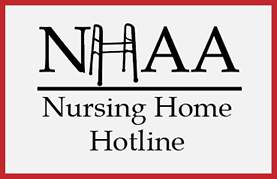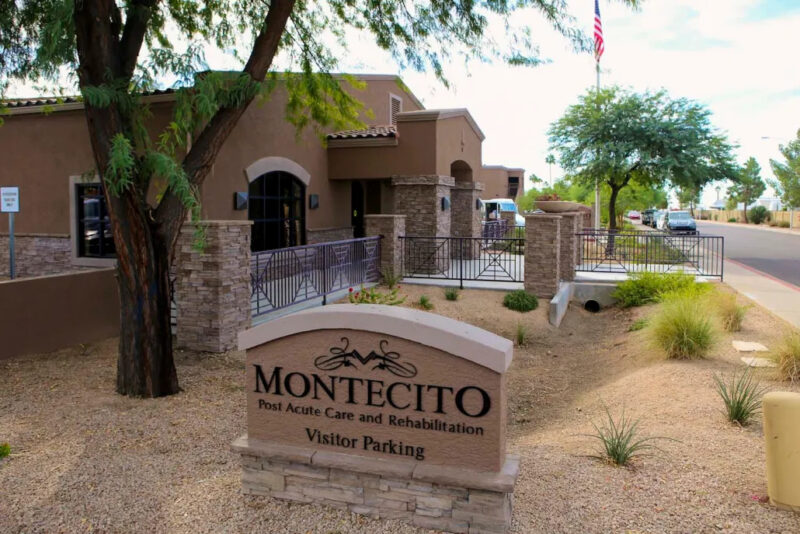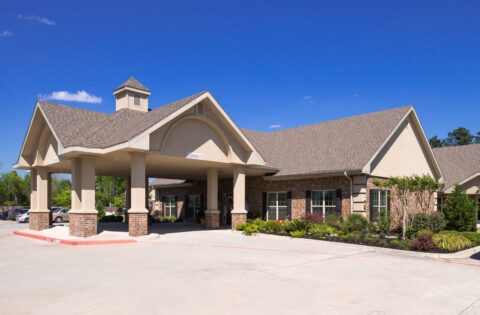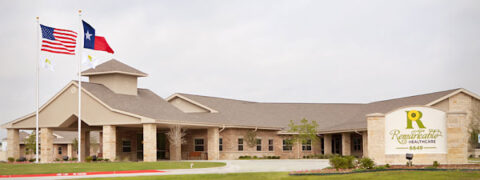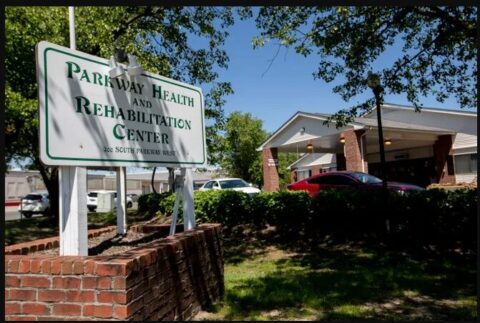In The News:
'I want to send a message': Arizona attorney general says she may prosecute senior care facilities
‘I want to send a message’: Arizona attorney general says she may prosecute senior care facilities
Assisted living facilities and nursing homes in Arizona could face lawsuits or criminal prosecution from the state for abuse, neglect or exploitation of seniors, Attorney General Kris Mayes told The Arizona Republic.
The move is a significant escalation of state oversight that historically was limited to small fines — or no punishment at all — for facilities that jeopardized the health and safety of residents.
“I want to send a message to all of these facility owners, to all the private equity firms that are trying to buy them up, that they owe a duty of care and they will be held accountable for it,” Mayes said in an exclusive interview with The Republic and azcentral.com. “That is not happening right now.”
Mayes established an elder affairs unit and hired an investigator this summer to crack down on problems that have festered under previous administrations.
In the spring, The Republic published a yearlong investigation exposing senior care failures. Mayes said the work has helped focus the attention of policymakers throughout the state.
“This is something that we all have to be working on. Not just me, but the Legislature, the governor and others,” she said.
Protecting seniors has stayed her top priority since taking office, she said.
Facilities that break rules designed to protect seniors typically pay the Arizona Department of Health Services $500 fines. Mayes said that’s a slap on the wrist — and one that some companies consider the cost of doing business.
State law grants Mayes’ office the authority to go after facilities for hundreds of thousands, if not millions, of dollars, she said.
“The urgency of this issue is compounded by the demographic realities of our state,” Mayes said. “We know that Arizona is home to a large and growing senior population and the state simply has to do more to protect these residents from fraud, neglect and abuse — full stop.”
How the Attorney General’s Office will target problem facilities
Mayes’ team will pursue leads through several avenues.
State law requires attorneys who sue nursing homes or elder care facilities to notify the Attorney General’s Office. Attorneys have done that, but in the past received no response. Mayes said her team is now tracking those notices in a database to watch for facilities that require investigation.
ayes also is meeting with law enforcement jurisdictions to encourage them to alert her office when they see poor care. Police officers are frequently called to assisted living centers and nursing homes and sometimes are the only witnesses to deplorable conditions.
In one extended case of residents suffering both neglect and abuse, Mesa police responded to more than 60 calls over a six-month period between August 2020 and January 2021 at the Ensign affiliate Montecito Post Acute and Rehab Center in Mesa — a facility nicknamed the “Piss Palace” by firefighters because of the overwhelming stench of urine.
Sometimes officers note management dysfunction or that they think residents are receiving substandard care. But their reports seldom go anywhere.
When responding to resident-on-resident assaults, officers also tend to focus on the resident who lashed out, determine they don’t have the cognitive ability to face charges and close the case, according to a Republic/azcentral.com review of hundreds of police reports.
But the root of the issue often is assisted living facilities and nursing homes failing to protect their residents.
Local law enforcement may not have the resources to pursue further information or their county attorney may not have the resources to prosecute. Neglect or abuse cases that focus on facilities are tough, Mayes said.
“They haven’t had an AG who’s been out there saying, ‘Hey we want to prosecute these cases and we can prosecute these cases,’” Mayes said.
Police or attorneys are not the only ones who can report problems. Anyone who wants to raise a concern can call 602-542-8888 or email the elder affairs unit at seniorabuse@azag.gov.
Shocking cases put spotlight on facility, state failings
The Republic published a series of articles in May showing how the state’s senior living system enables widespread violence between residents. Some facilities chronically stretch their staff too thin or hire people without training or credentials, which tends to leave residents with unmet needs. That triggers some residents, particularly those with dementia, to lash out.
In one of the most egregious cases, a Bethesda Gardens resident suffering from dementia, post-traumatic stress disorder and untreated infections beat a fellow resident to death with two wire hangers.
Staff at the Phoenix facility knew the woman had hurt others before — once when a different resident wandered into her room. Nevertheless, the victim, a wanderer, wheeled into the woman’s room without staff noticing until it was too late.
The Arizona Department of Health Services never replied when asked if anyone filed a complaint about what happened at Bethesda Gardens or if there was an ongoing investigation.
The news outlet also published an investigation in August about a tragedy affecting three families at two assisted living facilities. Heritage Village in Mesa skipped a resident’s Lorazepam, which she took to keep her dementia-related agitation under control. In crisis mode, the woman tore her roommate out of bed.
The roommate died of her injuries nine days later.
The woman was moved to Brookdale North Mesa after a few weeks in a geriatric psychiatric ward. Brookdale paired her with a 101-year-old roommate and, according to the roommate’s daughters, a facility manager disregarded their immediate concerns when she clashed with their mother.
Staff found their mother on the floor with a broken arm within weeks. She said her new roommate had pushed her, and she died a month later. The medical examiner determined her cause of death was “complications of Alzheimer’s dementia with a contributory cause of death of hypertensive and atherosclerotic cardiovascular disease, emphysema and a recent right humerus fracture.”
AARP seeks big reforms
Assisted living centers don’t have to tell the Arizona Department of Health Services — which licenses them and is supposed to investigate issues — when residents get injured, unless the injury is fatal. Otherwise, the state investigates if someone files a complaint about an incident. Repercussions often are minimal.
Heritage Village paid a $500 fine four months after the resident killed her roommate for failing to ensure staff had “qualifications, experience, skills and knowledge necessary to ensure the health and safety of a resident.”
The health department has not replied to repeated requests for clarification about penalties associated with the death.
When state inspectors investigated Brookdale North Mesa, which placed the woman who killed her previous roommate weeks earlier with a vulnerable 101-year-old woman, they found nothing wrong.
Dana Kennedy, Arizona state director for AARP, said retired state employees, family members with loved ones in facilities and people shopping for facilities have called asking what AARP is doing about the issues The Republic has exposed.
Some of the reforms on AARP’s wish list include:
- Changing the fine structure so penalties match the severity of the error. Kennedy said the state hasn’t increased fines since the 1980s.
- Increasing training requirements for caregivers who work with residents with dementia. Facilities commonly are cited for employing caregivers who are unable to prove that they have completed state-mandated training, though that includes less than seven hours of instruction addressing resident behaviors related to mental health, dementia or cognitive impairments.
- Improving oversight for the administration of medication in facilities. Facilities are commonly cited for medication errors, which can have deadly consequences.
- Reviewing the roommate system. Facilities should not board residents with a history of violence with roommates, she said.
- Requiring assisted living facilities to report resident injuries to the Arizona Department of Health Services.
- Creating a better search engine for families to properly vet assisted living facilities when they’re looking for a place for their loved ones. The state’s current tool is not intuitive and doesn’t offer a clear way to compare facilities across the board.
It is unclear if any lawmakers are ready to take the lead on the issue. The Republic alerted multiple members of the Legislature who have served on Senate and House Health and Human Services Committees to the news outlet’s latest investigation. Only one responded.
Rep. Steve Montenegro, R-Goodyear and chairman of the House Health and Human Services Committee said he forwarded the article to the Department of Health Services director and requested she provide a response. He did not reply when asked for an update a few weeks later.
AARP has pushed for years to reform Arizona’s senior living system and has struggled to gain traction.
But with Mayes and Gov. Katie Hobbs in top positions, Kennedy said she’s never felt as hopeful that change will come. Their offices have shown interest, energy and passion during their meetings with the organization, Kennedy said.
The governor’s spokesperson, Christian Slater, did not respond when asked what reforms Hobbs may consider.
“People’s entire retirement nest egg goes to provide care for them in these facilities and these facilities have an obligation to give them good, quality care,” Kennedy said. “It’s a real injustice if we can’t provide good care at such a high price.”
‘Maybe there will be change’
Change is all Cathy McDavid wanted when she sued Bethesda Gardens after her mother’s neighbor killed her with wire hangers. She said she felt like the state “washed their hands” of her mom’s death.
Adult Protective Services reviewed her case, but that agency does not examine facility-wide failures. Instead, it seeks out individual abusers and lists them on a registry. Resident-on-resident harm doesn’t fit into that lens.
“They didn’t view it as the facility was negligent, they viewed it as this was a (resident) and she can’t be held accountable for her actions and it was simply a tragic event,” McDavid said. “And she was a victim, in her own way. I really do believe that.”
Adult Protective Services closed the case and indicated it had been reported to the Arizona Department of Health Services, according to their report.
McDavid never heard from anyone else.
She thinks about this every day. The woman who attacked her mom had hurt others before. Why didn’t Bethesda Gardens request her family move her out then? And why didn’t the government, which is supposed to protect people, do anything after the crisis?
“I can remember sitting in mediation back in February and telling the mediator, ‘You don’t understand what I want. I want change. I don’t want people to be sitting in this chair where I am.’ And he looked at me and said, ‘You will never get that,'” McDavid said. “And I’m thinking maybe there will be change. It looks like there’s going to be change.”
Reach Caitlin McGlade at caitlin.mcglade@arizonarepublic.com. Follow her on X, formerly Twitter, @caitmcglade.
Your Experience Matters
...and we want to hear it.
NHAA is here to assist families, residents, and the community by sounding the alarm on issues like those found above. This nursing home and many others across the country are cited for abuse and neglect.
If you have or had a loved one living in this nursing home or any other nursing home where you suspect any form of abuse or neglect, contact us immediately.
We have helped many already and we can help you and your loved one as well by filing a state complaint, hiring a specialized nursing home attorney or helping you find a more suitable location for your loved one.
You can make a difference, even if your loved one has already passed away.
Please give us a call at 1-800-645-5262 or fill out our form detailing your experience.
Personal Note from NHA-Advocates
NHAA shares with all the families of loved ones who are confined to nursing homes the pain and anguish of putting them in the care of someone else. We expect our loved ones to be treated with dignity and honor in the homes we place them. We cannot emphasize enough to family members of nursing home residents; frequent visits are essential to our loved ones’ well-being and safety.
If you are struggling and upset, click here to understand your options, or contact us through our contact form or call our toll free hot line number: 1-800-645-5262.
